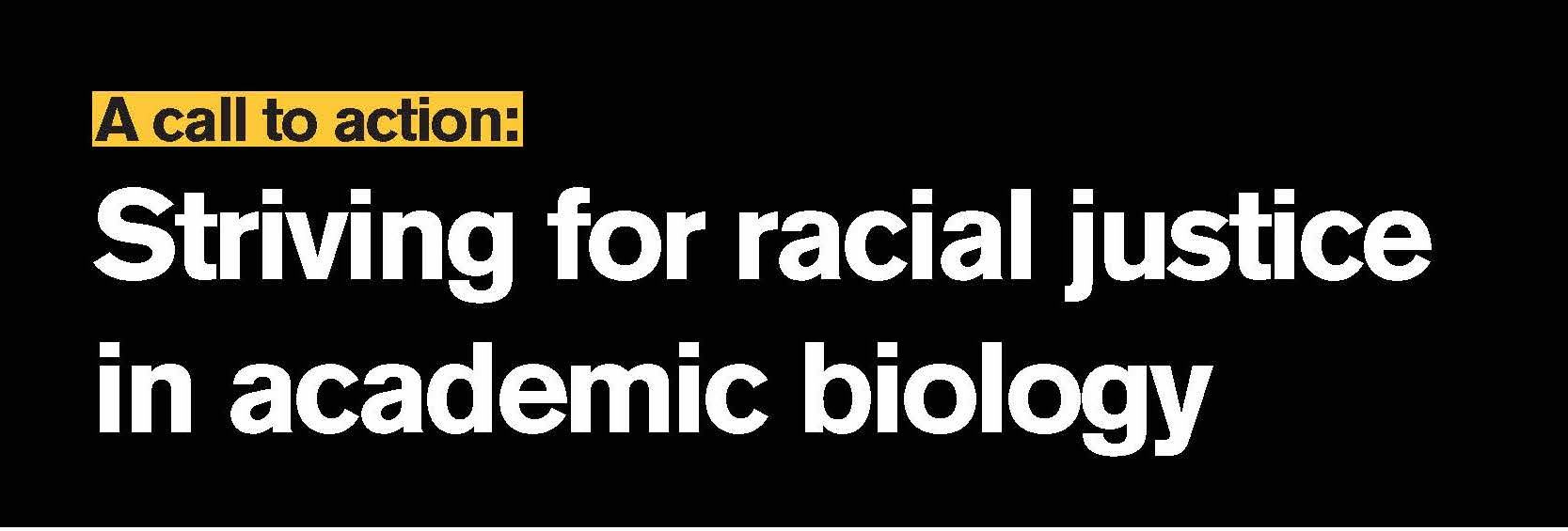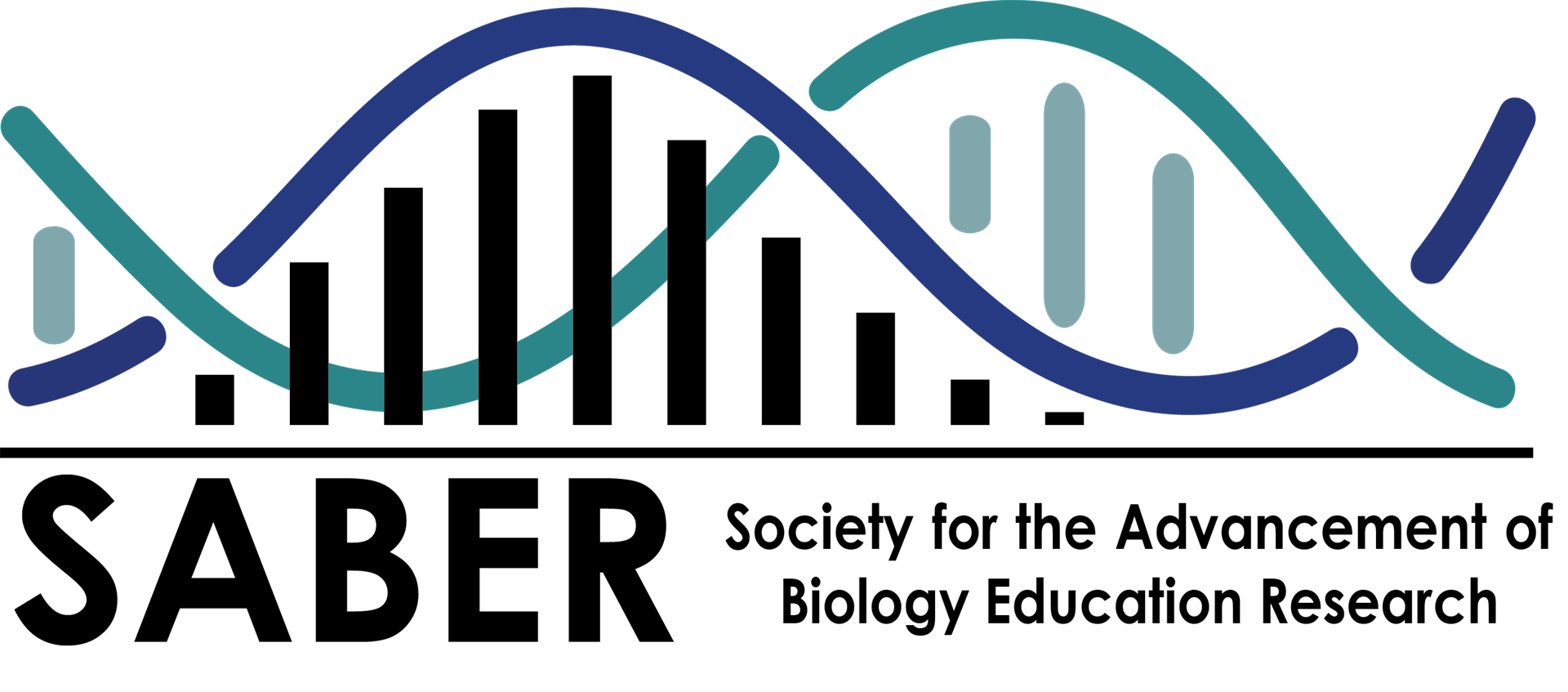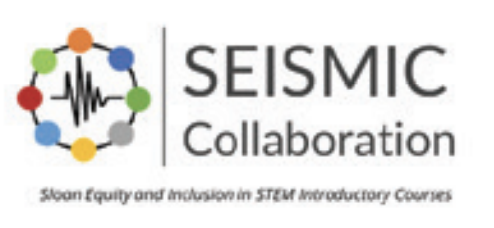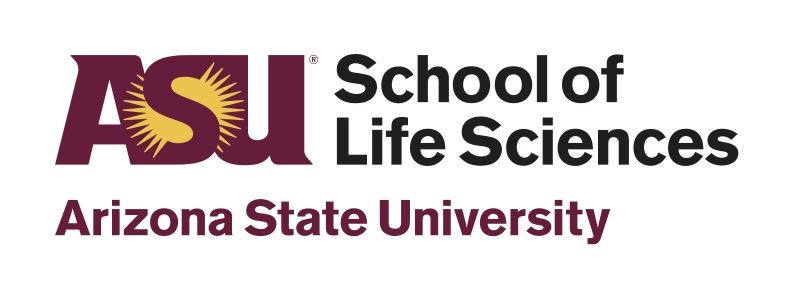SABER's Statement of Solidarity with the Black Community
The Black community in the United States deserves to feel safe no matter where they are. However, events in recent weeks remind us how systemic racism and biases threaten that safety. We as an academic community stand in solidarity with the Black community against these tragic injustices, and we are committed to finding ways to ensure our community is safe and welcoming. As a biology education organization, we are specifically committed to supporting our students and colleagues who are in pain and hurting because of these senseless acts of violence against Black Americans.
Since its inception, SABER has been graciously hosted by the University Minnesota-Twin Cities in Minneapolis. However, as a society, we need to reckon with our lack of awareness and action pertaining to the longstanding racial injustices across the country, and particularly in Minneapolis - injustices that resulted in the murder of George Floyd and violence against countless other Black Americans. One of the stated goals of our organization is to "strive for an inclusive community", part of which requires us to better understand and respond to the ways in which these longstanding racial injustices impact the lives of our students, members and colleagues. Moving forward, we commit as a society to educating ourselves and taking anti-racist action in the places where we convene, whether that be in Minneapolis or elsewhere. Furthermore, we will fight against systemic racism to better understand the potential struggles of our students and colleagues, particularly if we do not share their racial identities.
A first step to address these injustices is to increase our understanding of these inequalities and how our own biases are potentially contributing to these issues. We have compiled a suite of resources that can help us:
Suggested Articles:
- 75 Things White People Can Do for Racial Justice
- White Privilege: Unpacking the Invisible Knapsack
- Who Gets to Be Afraid in America?
- The American Nightmare
- Scientists push against barriers to diversity in the field sciences
- Race matters
Podcasts:
For additional anti-racism books, podcasts, and articles, click here.
Sincerely,
SABER Executive Committee and SABER Diversity and Inclusion Committee
SABER Financially Pressures Minnesota to End Police Brutality
The Society for the Advancement of Biology Education Research (SABER), a national organization of researchers dedicated to improving the teaching and learning of post-secondary biology, took a stand today with protesters across the country calling for the end of police brutality. For eight years, SABER has held its annual meetings in Minneapolis and over the years it has brought in thousands of visitors to the University of Minnesota-Twin Cities in Minneapolis. Today SABER sent letters to the Governor of Minnesota, the Minnesota Chamber of Commerce and many others informing them that the Society would no longer hold their conference in Minnesota until the state has demonstrated a commitment to racial justice:
“We need to see tangible evidence of action for justice for Mr. Floyd and of changes in Minnesota law enforcement. Such changes would include de-escalation training for police, firing of police who violate human rights, and implicit bias training for all government officials, police, and other public servants. These actions will allow its citizens of color to feel protected, not threatened, by police. We need to see the requests, needs and perspectives of your Black communities in Minneapolis and Minnesota honored.”
The full letter can be found here.
In addition to leveraging its financial resources to stand with protesters, SABER recognizes that as a professional society they also have internal work to do. They have announced initiatives to educate their own members about white privilege and systemic racism and assess additional actions they can take to promote racial justice both in biology classrooms and at their meetings. They have also formed a new committee to assess possible locations for their conference that ‘confer[s] a sense of safety to [their] members.’
Diversity & Inclusion Committee
The SABER Diversity & Inclusion Committee welcomes all SABER members interested in contributing to SABER's efforts around diversity, equity, inclusion, and anti-racism.
Contact the committee chairs for more information.
Sara Brownell (sbrownel@asu.edu)
Colin Harrison (colin.harrison@biosci.gatech.edu)
SABER's Diversity & Inclusion Efforts

An initiative in spring 2021 sponsored by the Society for the Advancement of Biology Education Research (SABER) focused on promoting awareness, understanding and commitment to change academic biology environments to be more inclusive. All 1-hour sessions were virtual and administered through Zoom; sessions were recorded and posted on the SABER website below. This series was co-sponsored by Arizona State University’s HHMI Inclusive Excellence Project, the SEISMIC Collaboration, the Community College BIO INSITES, and the ASU RISE Center.
Click here for a flyer with all of the events, dates, and Zoom links.
If you would like all the events added to your calendar, please click here.
 An initiative continuing in fall 2021 and spring 2022, which will be sponsored by the Society for the Advancement of Biology Education Research (SABER) and will be focused on promoting awareness, understanding and commitment to change academic biology environments to be more inclusive. All 1-hour sessions will be virtual and administered through Zoom; sessions will be recorded and posted on the SABER website below this. This series will be co-sponsored by the SEISMIC Collaboration, and the ASU RISE Center. |

An initiative sponsored by the Society for the Advancement in Biology Education Research (SABER) focused on promoting awareness, understanding and commitment to change academic biology environments to be more inclusive and strive for racial justice in STEM education.
This 7-part series in 2020 included four discussions and three research seminars with the intended audience of biologists and biology education researchers.
All 1-hour sessions were virtual and administered through Zoom; sessions were recorded and posted below for viewing afterwards. We are excited that speakers were compensated for their time and this event was co-sponsored by Arizona State University’s HHMI Inclusive Excellence Project, SEISMIC Collaboration, and University of California Santa Barbara.
Diversity & Inclusion Action Group on Place and Racial JusticeIn addition to the Diversity & Inclusion Committee, in spring 2020, SABER convened an Action Group on Place and Racial Justice. This group worked to (1) identify the issues of "place" that confer a sense of safety, or lack thereof, to our members identifying as People of Color and (2) assess actions that SABER and SABER members can take to promote awareness of and action surrounding racial justice in whatever place we select to meet with one another going forward. During the Virtual 2020 SABER Annual Conference, SABER undertook a racial justice self study. Dr. Kecia Thomas, Professor of Industrial/Organizational Psychology and African-American Studies, the founding director of the Center for Research and Engagement in Diversity, and the Senior Associate Dean of Franklin College of Arts and Sciences at the University of Georgia, facilitated the self-study. Learn more about this process and the results in these videos from the conference. Past talks Understanding oppression faced by Asian Americans Sapna Cheryan, PhD, University of Washington Thursday, September 16th, 2021, 9 am PT Video recording | Presentation slides The meaning beyond the words: How language, race, & culture impact science teaching & learning Bryan Brown, PhD, Stanford University Thursday, October 21st, 2021, 9 am PT Mapping the terrain of othering: Religious, gendered, and racial exclusion on historically white campuses Kameelah Mu'Min Rashad, PhD, Muslim Wellness Foundation Keon M. McGuire, PhD, Arizona State University Thursday, November 18th, 2021, 9 am PT Effective, culturally responsive mentorship Angela Byars-Winston, PhD, University of Wisconsin-Madison Thursday, January 20th, 2022, 9 am PT Video recording | Q&A | Additional resources Reframing equity in STEM education with historically minoritized communities: Seeding rightful presence Edna Tan, PhD, University of North Carolina at Greensboro Thursday, February 10th, 2022, 9 am PT Video recording | Q&A | Resource 1, resource 2, resource 3 Creating a culture of access in academic biology: A focus on disability (unfortunately this event has been cancelled) M. Remi Yergeau, PhD, University of Michigan Thursday, March 17th, 2022, 9 am PT This series is sponsored by SABER and these co-sponsors:
|
Interrogating the center of STEM education Cynthia Bauerle, PhD, James Madison University Thursday, January 21st, 9 am PT Video Recording, Presentation Slides, Post-talk Q&A
Addressing students’ basic needs with a culture of caring during the pandemic Sara Goldrick-Rab, PhD, Temple University Thursday, February 4th, 9 am PT Video Recording, Presentation Slides, Post-talk Q&A Structural racism, institutional transformation, and diversifying the STEM faculty Kimberly Griffin, PhD, University of Maryland Thursday, February 18th, 9 am PT Video Recording, Presentation Slides, Post-talk Q&A The influence of kindness and community in broadening participation Mica Estrada, PhD, UC San Francisco Thursday, March 4th, 9 am PT Video Recording, Presentation Slides, Post-talk Q&A-1, Post-talk Q&A-2 Systemic disadvantages for LGBTQ professionals in STEM Erin Cech, PhD, University of Michigan Thursday, March 18th, 9 am PT Video recording, Presentation Slides, Post-talk Q&A | Disability culture in the academy: Stories, lessons & research
Anjali Forber-Pratt, PhD, Vanderbilt University Thursday, April 1st, 9 am PT (unfortunately this event has been cancelled) Land of milk and "honey": Confronting gendered experiences in field research Katie Hinde, PhD, Arizona State University Thursday, April 15th, 9 am PT Video Recording, Presentation Slides, Post-talk Q&A, Post-talk Q&A Additional, Additional Resources Nature-culture relations and engaging multiple ways of knowing Megan Bang, PhD, Northwestern University Thursday, April 29th, 9 am PT Beyond information: Walking the path of truth, reconciliation, and liberation to make academic biology more inclusive Mays Imad, PhD, Pima Community College Thursday, May 13th, 9 am PT Video Recording, Presentation Slides, Post-talk Q&A |
Race REALLY matters. Discussion. Thursday, August 27, 11 am central David Asai, PhD, Howard Hughes Medical Institute Video Recording, Presentation Slides, Post-talk Q&A Actionable steps toward equity in STEM. Discussion. Thursday, September 10, 12 pm central John Matsui, PhD, UC Berkeley Video Recording, Presentation Slides, Post-talk Q&A Lessons from a hot spring: Authentic transformation in the higher education classroom. Discussion. Bryan Dewsbury, PhD, University of Rhode Island Video Recording, Presentation Slides, Post-talk Q&A Language matters: Considering racial microaggressions in science. Discussion Kimberly Tanner, PhD, San Francisco State University Video Recording, Presentation Slides, Post-talk Q&A But
is it really “just” science? Engaging critical race theory to unpack
racial oppression with implications for Black student science
engagement. Seminar. Video Recording, Presentation, Post-talk Q&A
|
Black women and belongingness: An interrogation of STEM education as a white, patriarchal space. Seminar.
Thursday, November 19, 2 pm central Nicole Joseph, PhD, Vanderbilt University Video Recording, Presentation Slides, Post-talk Q&A An exploratory investigation of the experiences of Black immigrant women in undergraduate STEM. Seminar. Brooke Coley, PhD, Arizona State University Video Recording, Presentation Slides, Post-talk Q&A SEE THE FLYER FOR ALL 7 EVENTS HERE. This series is sponsored by SABER and these co-sponsors:
|


